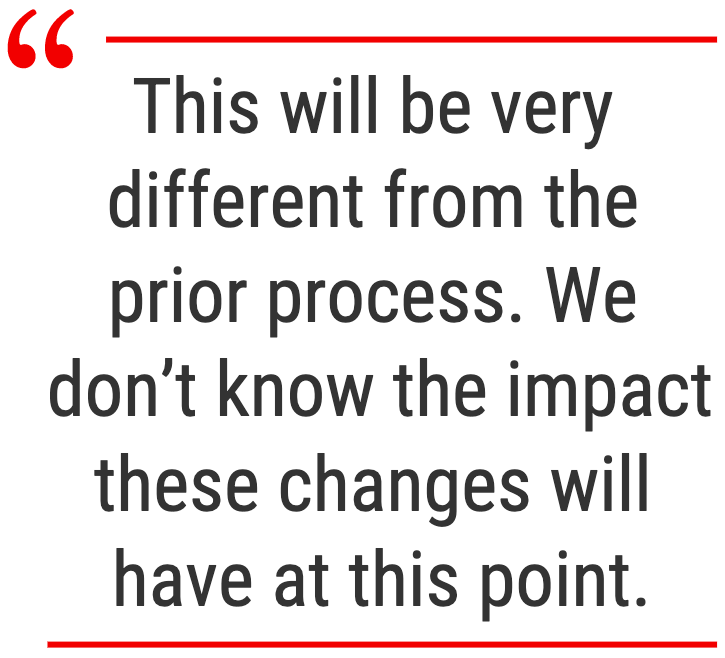
Julie Dubinsky, Title IX coordinator and director of human resources, sent an email Aug. 19 informing the campus community of changes William Jewell College made to their Title IX policy in response to new federal regulations. Jewell’s sexual harassment policy was affected most by these changes.
Betsy DeVos, U.S. secretary of education, announced new regulations May 6. These regulations officially went into effect Aug. 14. The new regulations address a criticism of the Obama era Title IX regulations, stipulating that the accused must be assumed innocent prior to the investigative and decision-making process.
Generally, those in support of DeVos’ Title IX reform feel the Obama-era regulations were generally over-enforced and led to too many students being removed from campus for violations.
In response, women’s advocacy groups and several Democratic members of Congress, including Speaker of the House Nancy Pelosi, condemned the new rules on the basis of the strengthening of the rights of the accused.
In the new policies passed by the Trump administration, colleges and universities can either opt for a standard of “clear and convincing” or a “preponderance of” evidence. The Obama-era Title IX legislation enforced only the preponderance of evidence standard, which essentially states that the adjudicator should find it more likely than not that the alleged sexual harassment took place.
Those who support the DeVos overhaul have complained that the preponderance of evidence is overly lenient to the complainant. The “clear and convincing” standard that schools may now opt for raises the bar for the amount of evidence needed to decide a case from just “more than likely” to substantially more likely than not likely.
Jewell decided to go forward with the preponderance of evidence standard – as had been the norm prior to the passage of the new regulations – instead of opting for the clear and convincing evidence standard.
In terms of how these new regulations affect Jewell, the biggest changes in the sexual harassment policy concern the way complaints are processed.
“If a formal complaint is filed, the default process is to proceed using a hearing process. This is a formal process that is explained in detail in the policy. Formal complaints may also be resolved through informal resolution only if both parties are in agreement and provide voluntary, written consent after receiving detailed notice of allegations and explanation of informal resolution process. It is important to note that the respondents are presumed not responsible for the alleged conduct until a determination of responsibility is made at the conclusion of the Process,” Dubinsky said in the Aug. 19 email.
The policy details that the formal process begins after a formal complaint has been filed by the complainant. Within five days after the complainant has filed a formal complaint, a written notice will be issued to the complainant and respondent including sufficient details of the reported assault or harassment, a statement that the respondent is considered innocent of the allegation until the case concludes.
This will follow with an investigation led by an individual selected by the Title IX coordinator, involving the collection of inculpatory and exculpatory evidence. The burden of gathering evidence lies with the College and not with the parties. The investigator will conclude by preparing an investigation report that will be submitted to the adjudicator.
Then, both the complainant and respondent will receive a notice indicating that they can select between two adjudication processes – the default hearing process for formal complaints or administrative adjudication. Each party has three days to indicate their consent to participate in administrative adjudication. If one or both of the parties do not consent, the default hearing process begins.

The default hearing process begins with the appointment of a hearing officer by the Title IX coordinator. The hearing officer will then send a notice of their appointment and request that each party sends back a written response to the investigation report. Then, the hearing officer will conduct a pre-hearing conference with the parties and their advisors wherein the officer describes the hearing procedures.
In a departure from the previous hearing process, the new policy requires live hearing processes that involve direct and cross examination of the involved parties. Upon completion of the hearing, the officer will objectively evaluate all evidence and use a preponderance of evidence standard to determine whether a Title IX policy was violated. The hearing officer will then transmit their written decision to the parties.
“This will be very different from the prior process. We don’t know the impact these changes will have at this point,” Dubinsky said.
The administrative adjudication informal resolution option allows the parties to resolve a formal complaint as an alternative to the hearing process. Both parties must consent to this option in writing. If this option is selected, the Title IX coordinator will appoint an administrative officer who will be given a copy of the investigation report and evidence.
The administrative officer will request written responses from both parties regarding the investigation report and schedule a time to meet with each party individually. The administrative officer – after evaluating the report, evidence and responses – will then use the preponderance of evidence standard to reach a decision on whether a Title IX policy was violated and transmit a written decision to both parties for purposes of informal resolution.
New regulations also included redefinitions of several terms, including a narrowed definition of sexual harassment. Sexual harassment is divided into two categories, known as “quid pro quo sexual harassment” and “hostile environment sexual harassment.”
Quid pro quo sexual harassment is defined as a College employee’s provision of “aid, benefit or service of the College” in exchange for an “individual’s participation in unwelcome sexual contact.”
Hostile environment sexual harassment is defined as unwelcome conduct determined to be “so severe, pervasive and objectively offensive that it effectively denies a person access to the College’s education programs and activities.”
In determining the veritability of a hostile environment sexual harassment claim, the investigator and adjudicator will look into a number of circumstantial factors – including impact of the alleged conduct on the complainant, severity of the conduct, frequency of the conduct, relationship between and ages of the parties and the number of people affected by the respondent’s conduct.
Dubinsky emphasized that, despite all the changes, she wants to make sure the reporting process is as coherent and accessible as possible.
“We strive to make sure all are aware as to how to report sexual harassment. Any person may report Sexual Harassment to any College employee and they must report it to the Title IX Coordinator or Deputy Title IX Coordinator. The sole exceptions to the mandatory reporting for employees are the Professional Counselors at the Counseling Services and the Medical Professionals at the Student Health Center,” Dubinsky said.
Both reports given to mandatory reporters and incidents reported to non-mandatory reporters – professionals at the Office of Counseling Services and the Student Health Center – will be included in Jewell’s Annual Security and Fire Safety Report.
If you or someone you know has been sexually harassed or assaulted and wants to report their case for investigation, you can speak to any mandatory reporter or contact Julie Dubinsky at dubinskyj@william.jewell.edu or Landon Jones, deputy Title IX coordinator, at jonesl@william.jewell.edu.
If you are not interested in reporting but want someone to talk to about sexual harassment, assault or any other issue, you can reach out to Jewell’s Office of Counseling Services at counselingservices@william.jewell.edu.
